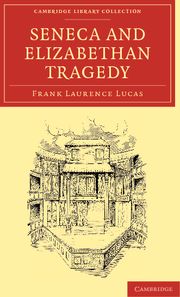CHAP. II - SENECA THE MAN
Published online by Cambridge University Press: 07 September 2010
Summary
The Republic blustered to its end, and passed in a death-agony of twenty years of civil slaughter. War-weary, broken in spirit, craving no longer self-government, but government at any price, no longer liberty, but at least law, the exhausted world turned to rest with a sigh of gratitude under the shadow of Augustus' quiet sovereignty. In those years when Peace was new and enthusiasm fresh, while the virility of the old turbulent republic still ran strong and men felt that autocracy had crushed licence, not yet despotism liberty, arose the Golden Age of Roman Literature. It was as when, after long days of rain and tempest in the hills, suddenly bright weather comes and the sun makes glorious a hundred torrents foaming down in spate with storm-fed waters and all nature looks her fairest. But, as the sun shines on day after day, the waters dwindle and the live green withers and all grows hard and dim and dusty; so also the inspiration and magnificence of the first Augustans was to fade little by little through frivolous sparkle to the death-blank sterile silence of Tiberius' day.
About four years after Horace died, were born at opposite ends of the Empire, the one at Corduba in the far West, the other at Bethlehem in Judea, perhaps the most typical and the most original characters of the first century a.d.
- Type
- Chapter
- Information
- Seneca and Elizabethan Tragedy , pp. 25 - 52Publisher: Cambridge University PressPrint publication year: 2009First published in: 1922

